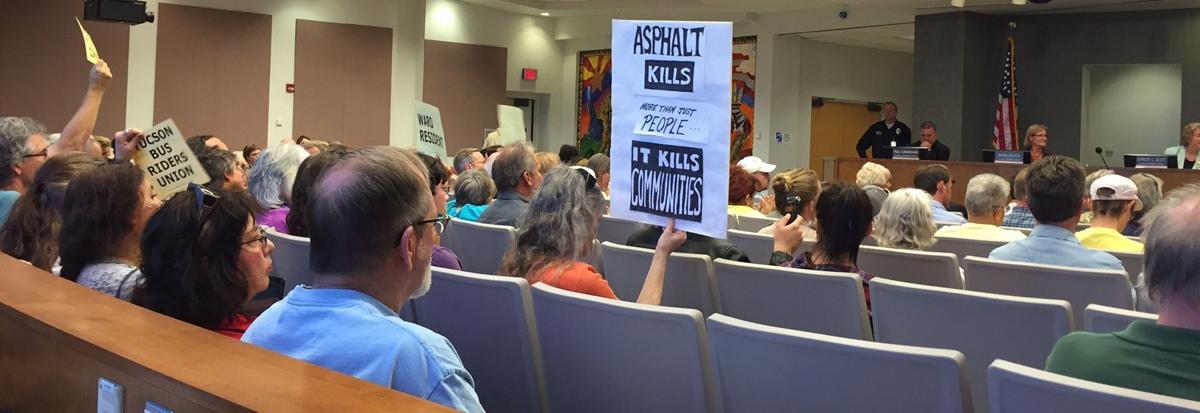Tucson will move forward with the purchase of properties along Broadway east of downtown for a future road-widening project.
Saying they were accepting a compromise, Tucson City Council members voted 5-1 Tuesday to approve $18 million from the Regional Transportation Authority and to begin negotiations to buy needed properties.
The project to widen Broadway to six lanes between Euclid Avenue and Country Club Road would result in 27 demolitions, including seven buildings that contribute to the historic status of surrounding neighborhoods, which has drawn passionate opposition. Construction is not expected until 2018.
During the call to the audience, Broadway property owner Richard Rose described himself as a “hostage” to the years of discussions about how to widen the major street.
That struck a chord with Councilmember Richard Fimbres, who represents some of the neighborhoods south of Broadway.
He said the city needs to start working with those property owners.
Bruce Dusenberry, a Southern Arizona Leadership Council member and a historic-preservation advocate, said the issue is “not an easy for-or-against” decision, but the current plan is a good compromise because it reduces the number of lanes and minimizes demolitions of historic buildings.
Business owner Judy Wood said the Broadway plan “is a good plan, a compromise. It really is thoughtfully done and will serve our community well.”
Fimbres said he has seen the compromise happen and now “I think we need to move this thing forward.”
Architect Bob Vint had encouraged the council to “push the pause button” on the project and accept free consulting services from him and his University of Arizona colleagues for a potentially different design.
Councilmember Steve Kozachik favored the pause and voted no on moving forward. Councilmember Regina Romero was absent from the meeting because of a family emergency, making the vote 5-1.
Tucson Mayor Jonathan Rothschild encouraged the divided public not to think of compromise as a bad word. He said moving forward will allow the city to work with property owners to save as many buildings as possible.
He said more public input will be collected as the design stage progresses. City Manager Michael Ortega said that will include public meetings about landscape and streetscape ideas.
Rothschild worked with the RTA board in 2014 to reduce the scope of the voter-approved project from eight lanes to six lanes.
Transportation Director Daryl Cole said city staff used a customized design to minimize impacts “foot by foot” along the project route.
No plan is perfect, Rothschild said, but more than $4 million has been spent on planning, design and engineering, and “I’m not gonna support throwing that money away.”





